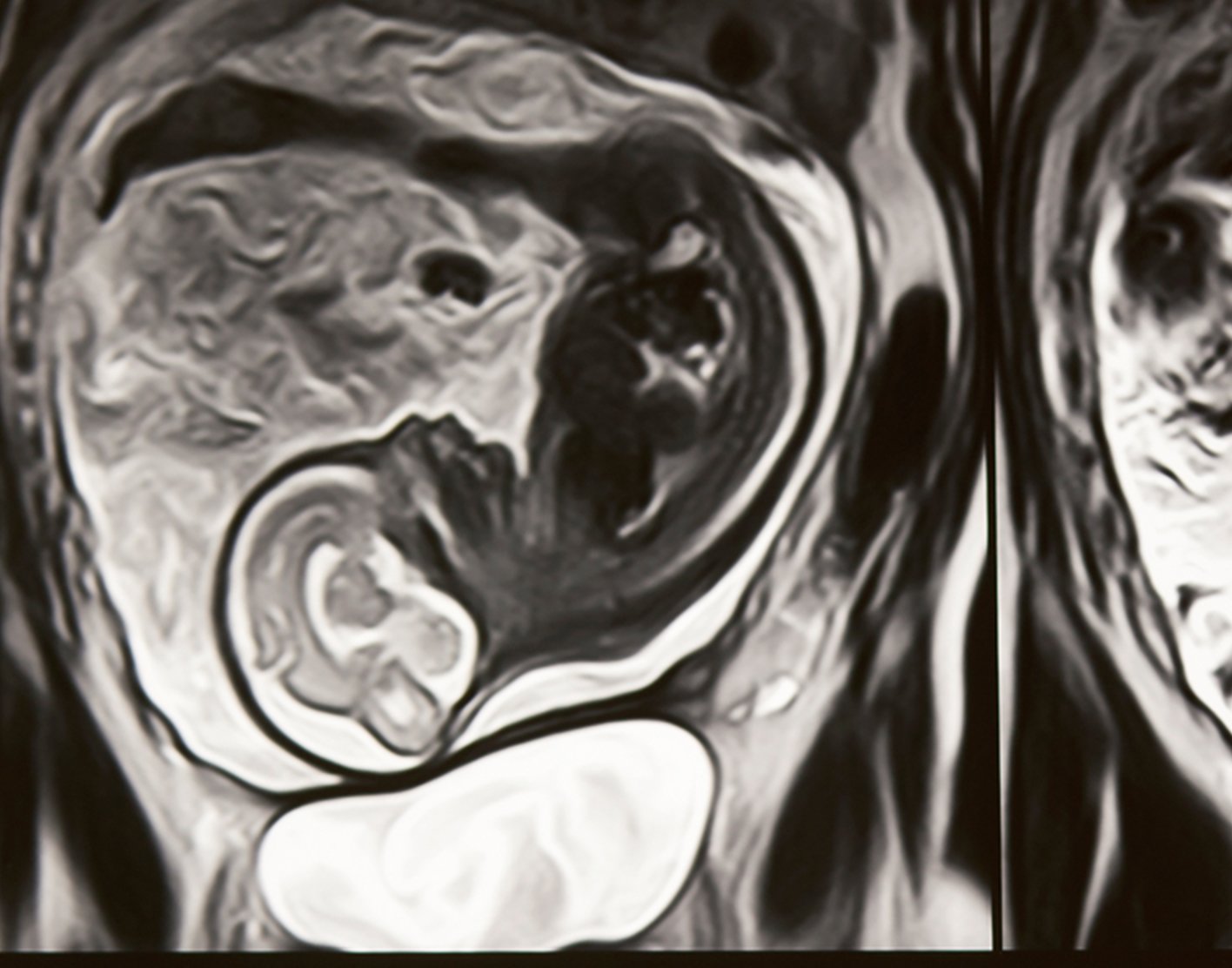
Fetal MRI
Magnetic Resonance Imaging (MRI) is a well-established diagnostic imaging technique that uses a strong magnetic field and radio waves to obtain pictures of the inside of the body without utilizing radiation. The MRI machine acquires data regarding the fetus without causing harm and creates detailed images in different angles that radiologists and other members of the Fetal Medicine team can view. From the published literature, it would appear that MRI provides additional diagnostic information to that given by ultrasound in nearly half of the cases, which in turn may have influence on prenatal counseling and/or management of affected pregnancies.
How a fetal MRI Is performed
The MRI scanner can be described as a big box with a tunnel through the middle. You will lay in the MRI tunnel either on your back, or if this is uncomfortable, as it is often in advanced pregnancies, on your left or right side. (If on your back, padding behind the knees helps take pressure of the lower back.)
You will need to be as still as possible during the MRI because motion degrades the images. Foam cushions and soft straps can be used to help keep you still. A soft, flexible wrap goes over the belly and records the radio waves for the picture creation. You will be asked to empty your bladder prior to the MRI. Patients often benefit from having a companion in the room. Earplugs are worn to mute the loud knocking noise of the machine. There is an intercom in the scanner, so you can talk to the MRI technologist performing the scan.
MRI is Safe
The present data shows that the magnetic field and the radio waves that are used in the MRI are safe for the mother and the unborn baby. The MRI has been used for more than 15 years without a reported negative effect on the imaged foetuses. Therefore, pregnant patients can be accepted to undergo MRI scans at any stage of pregnancy, but are preferably weeks of gestation.
Special Precautions
All people entering the MRI room are required to complete a MRI questionnaire prior to the scan. It asks the patient’s medical history and helps the MRI team ensure the safety of all patients in the scanning room. Because the machine is a large magnet, no metal can be brought into the room. All body piercings must be removed. The following items are affected by the magnet and are not permitted into the scanning room for safety reasons: watches, pens, keys, hair pins, safety pins, mobile phones, credit cards, pagers, radios, and CD players.
Scheduling Your MRI
Your obstetrician or perinatologist will send a referral to Children’s Hospital Oakland. Our radiologists will then decide when to schedule your test. The schedulers in Diagnostic Imaging will contact you with the day and time for your test. The Fetal Medicine Nurse Practitioner will call you prior to your appointment to give you more information about what to expect and answer any questions.
Getting the Results
The MRI exam findings will be reported by the radiologist as early as possible, but sometimes results can take up to 24–48 hours. Naturally, in complex cases the image analysis may require more time, as the radiologist needs to consult and discuss the findings for the most accurate interpretation with the other radiologists on our team. The report will be delivered to the ordering physician. The radiologist will also be in contact with your OB/GYN or perinatologist and send them a copy of the MRI findings. The doctor who ordered your Fetal MRI will give you the final results.



























